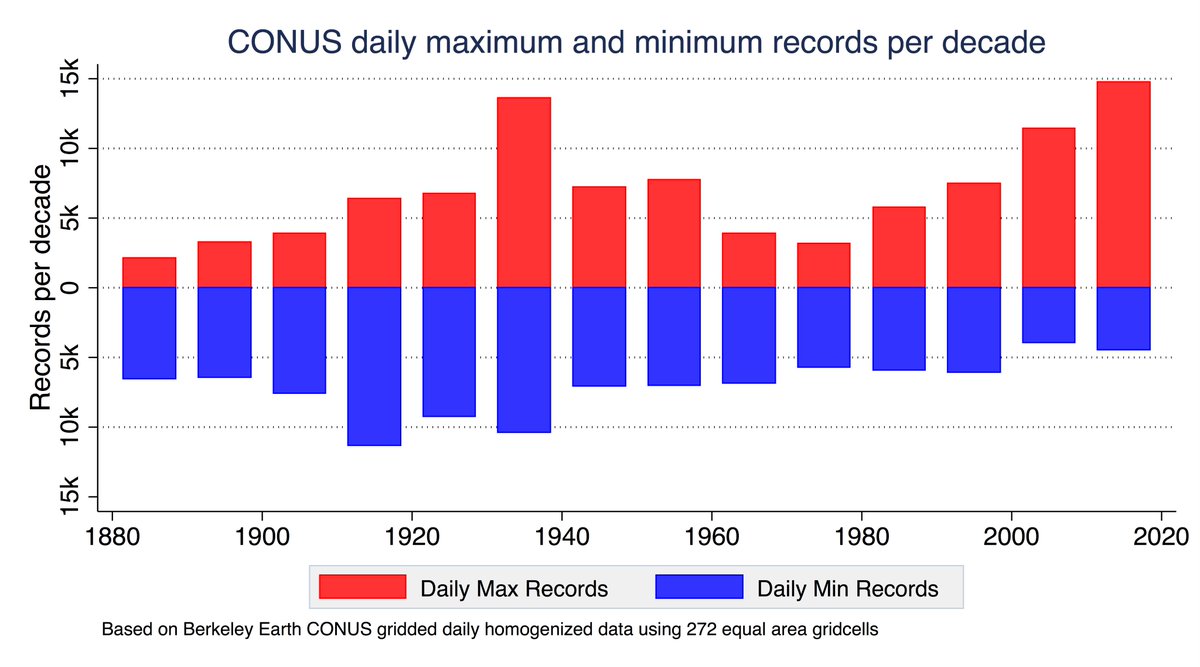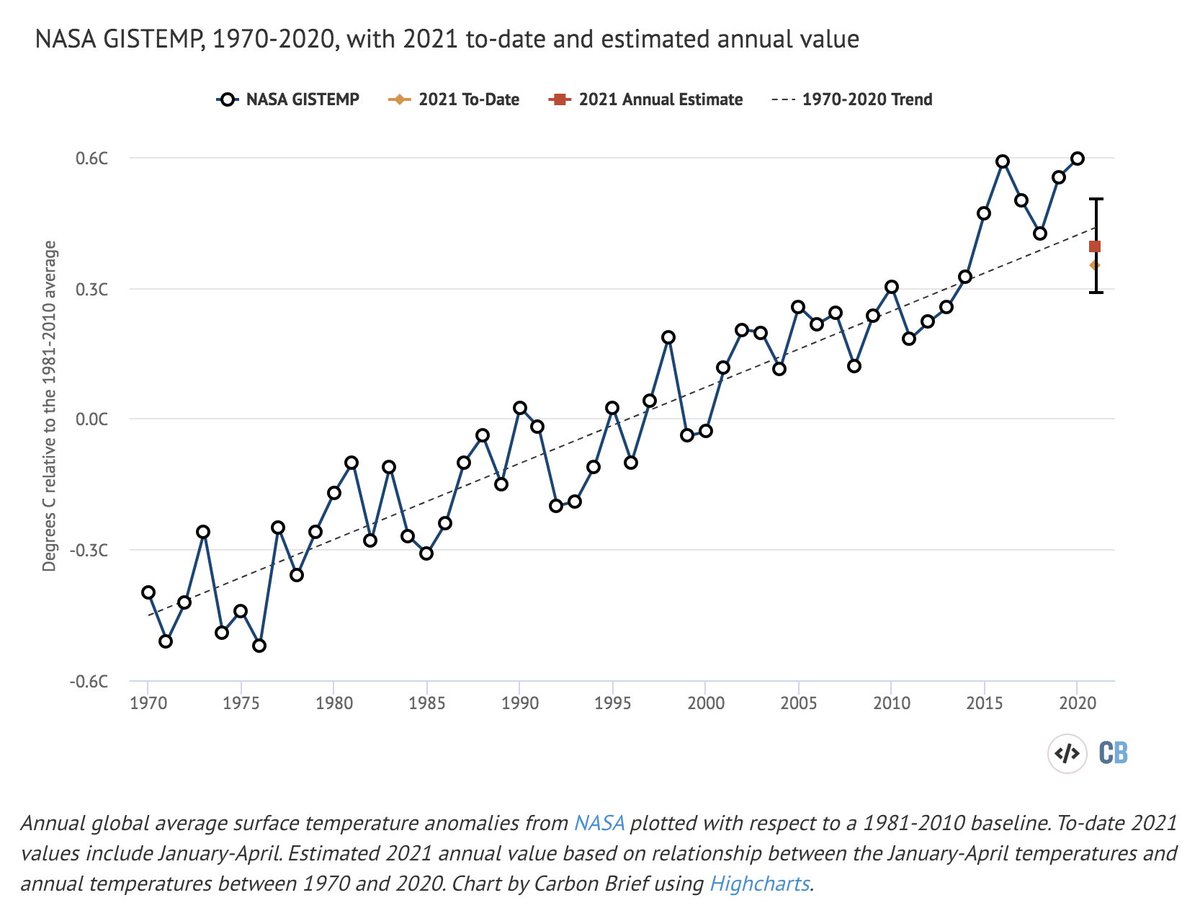
We often look at monthly or annual climate datasets, but daily data matters a lot for studying extremes. Using @BerkeleyEarth daily homogenized gridded data, I took a look at how the number of daily maximum and minimum records has changed over time: 

To calculate how the number of records have changed over time, I looked at when the record low and high daily temperature over the 1880-2019 period was recorded in each grid cell for each day of the year, resulting in 365 days * 5498 gridcell max and min records.
If we look specifically at the contiguous US (e.g. excluding Alaska and Hawaii), we see a more pronounced set of 1930s daily maximum records corresponding to the dust bowl, but also see that the past decade (2010-2019) has set more daily maximum records. 

Daily minimum temperature records have seen a decline in recent decades in both the global and contiguous US datasets.
If we look at the whole US, including Alaska and Hawaii, we get a slightly different picture. This is in large part due to the fact that Alaska is quite big, and has been warming quite rapidly in recent decades: 

One caveat: this is an initial analysis and there may be bugs (indeed, I quickly deleted an earlier thread when I found one!). It also may be biased by changing availability of gridcells over time, though this will matter a lot more for the global than US analyses.
The @BerkeleyEarth homogenized gridded daily dataset can be found here: berkeleyearth.org/data-new/
• • •
Missing some Tweet in this thread? You can try to
force a refresh








